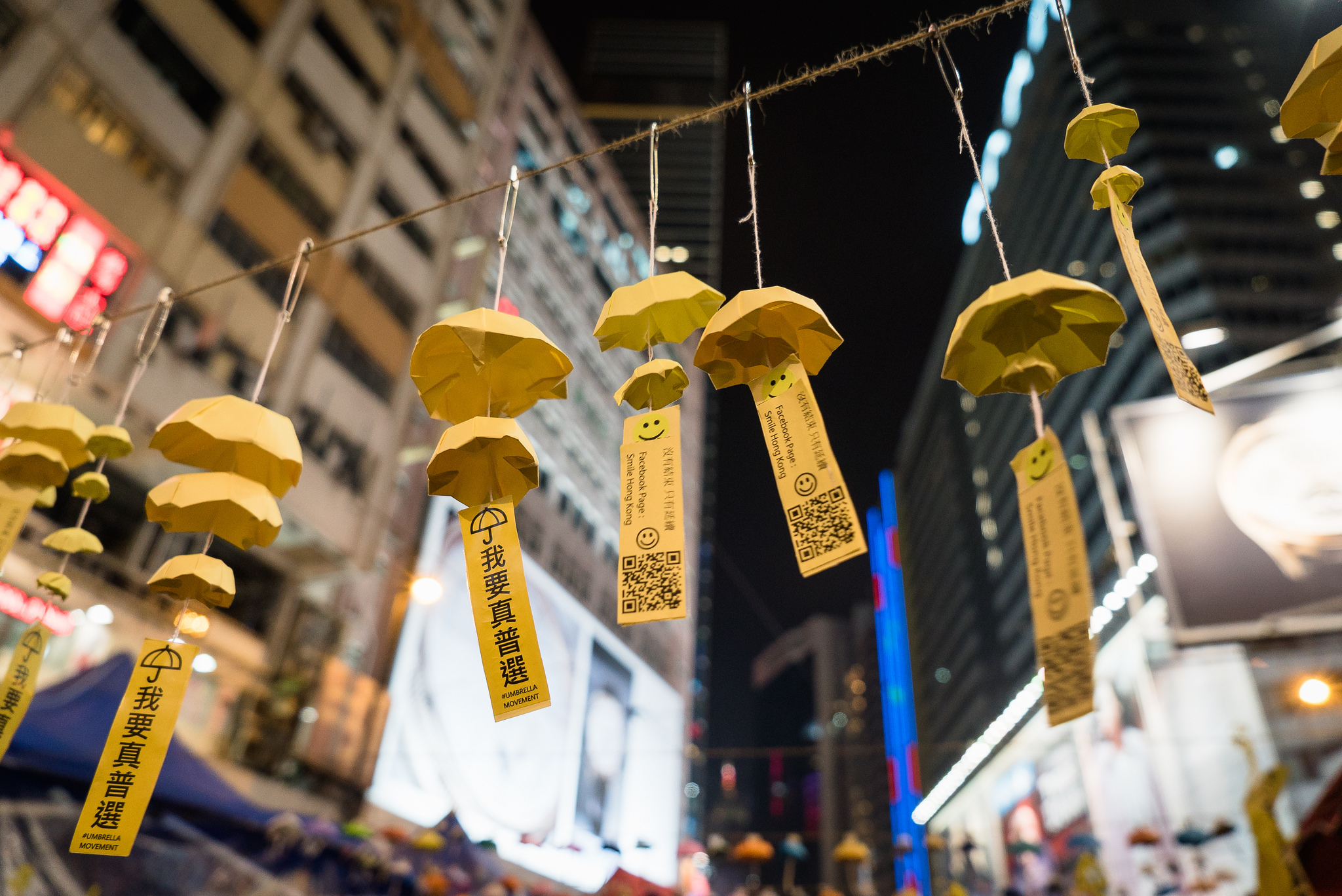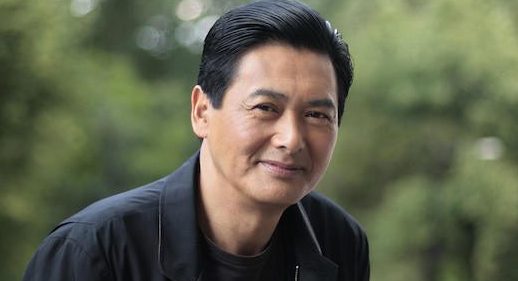Hong Kong experienced another, much smaller, pro-democracy protest this Sunday when close to 13,000 people peacefully took to the streets.
The organizers of the protest hoped to achieve a turnout of 50,000, but were disappointed to find out that only a few took to holding the yellow umbrella — the sign of protest that dominated Hong Kong last year before the government forced the protesters into submission.
Two thousand police officers stood by to watch the demonstrators go by in Hong Kong’s most prestigious financial sector. There have been no reports of violence or clashes, but only chants for freedom and democracy that echoed between the high-rise buildings.
The people that showed up were spotted carrying British Union Jack flags, symbolizing the city’s past status as a British protectorate before it was turned over to the Chinese in 1997. Although the British period was undeniably an era of instability, it was one in which the virtues of British democracy were bestowed on the residents of Hong Kong — virtues which still permeate Hong Kong’s anglophile culture.
Last year the protesters demanded to be given more democratic choice in their search for a proper leader for the city, which resulted in vast Occupy-type settlements and even barricades across sections of the city. This time the protest did not reach the same level of commitment.
The South China Morning Post ran an article where they showed an interview with Daisy Chan, one of the organizers of the protest. Chan stated that the low-turnout “only shows that Hong Kongers are no longer satisfied with conventional ways of protest”.
In another report, Chan said, “In the past, these citizens were less political than they are right now. The Occupy movement woke people up.”
Despite Beijing’s steadfast refusal to defer to the protesters, it conceded to give the city the possibility to select from a group of leaders hand-picked by Beijing.
Although hardly anything that resembles democratic conduct, the idea is still not ratified and will only be implemented after 2017, if ever.
The facts are, however, that the turnout was minimal when compared with the roaring crowds that made international headlines for weeks last year, and that after the crowds began to die down, police engaged in meticulous questioning which, even though did not lead to criminal charges, must have had an effect on the general populace.
It is essential to remember that China is a despotic nation, and that the government is putting on a relatively pleasant face should not detract attention away from its coercive nature. In this China faces international pressure, compounded by Hong Kong’s youth, who refuse to depart from their ideas about the intense government regulations that fill the city as thickly as does its smog.
It is not surprising therefore that many of the people who attended were carrying banners that had, “Reject fake democracy, we want real universal suffrage,” written on them in large, bold letters.
Whether or not what is happening now in Hong Kong will result in large demonstrations similar to the ones which shook the world last year is hard to tell; the real question is how the Chinese government will respond if it does.
Analysis by Milad Doroudian
Image by Pasu Au Yeung

